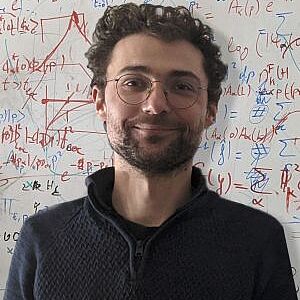
Adam Rançon
- FACULTE DES SCIENCES ET TECHNOLOGIES
- DEPARTEMENT PHYSIQUE
Home
I am a researcher in condensed matter theory, interested in both theoreical and experimental of cold atoms physics. My work focuses on exploring the fundamental properties of quantum matter, such as the thermodynamics of ultracold gases in low dimensions, non-equilibrium quantum systems, and fundamental aspects of quantum field theory. To do so, I use various methods, ranging from numerical simulations to field theory, with a particular emphasis on the functional renormalization group. This powerful method allows us to describe strongly correlated phases of matter and second-order phase transitions, as well as low-dimensional systems.
Since I arrived in Lille in 2016, I have been collaborating with Radu Chicireanu's team to study periodically driven quantum systems, such as the Quantum Kicked Rotor (QKR). This model presents a fascinating connection with disordered systems, and the interplay between driving, interactions, and disorder is a captivating problem for a theoretician. Using this model, we have experimentally studied the Anderson transition in four dimensions (4D), thanks to synthetic dimensions generated by modulating the kicks. We analyzed the critical properties as well as the universal scaling function describing the dynamics near this transition, offering new insights into this key phenomenon of quantum localization.
Moreover, my work includes the analysis of quantum fluctuations near thermal critical points, revealing important dynamic singularities. I have also focused on 2D Bose gases, a paradigmatic example of systems with strong quantum and thermal fluctuations. These gases, due to pronounced phase fluctuations and the presence of topological defects (vortices), pose a unique theoretical challenge. I have specifically studied Tan's contact, a quantity that connects short-range correlations between atoms and the thermodynamics of ultracold gases. Using the functional renormalization group, I have been able to accurately describe the behavior of the contact at different temperatures, particularly in the superfluid transition regime (the Kosterlitz-Thouless transition). This approach has led to a remarkable agreement with experimental results, highlighting the efficiency of this method in capturing the properties of these strongly correlated systems.
Recently, my research has also focused on universal probability distributions near the critical points of second-order phase transitions. We demonstrated that, near the critical point, the distributions of the order parameter are highly non-Gaussian, indicating a violation of the standard central limit theorem. Using the functional renormalization group, we were able to precisely describe these universal distributions for correlated systems, thus generalizing classical statistical results to strongly correlated systems.
My research also extends to other topics, such as the non-equilibrium dynamics of quantum systems (quantum quench in bosonic and fermionic superfluids), dissipation, equilibration in quantum systems, the Casimir effect, high-Tc superconductors, and statistical inference.



